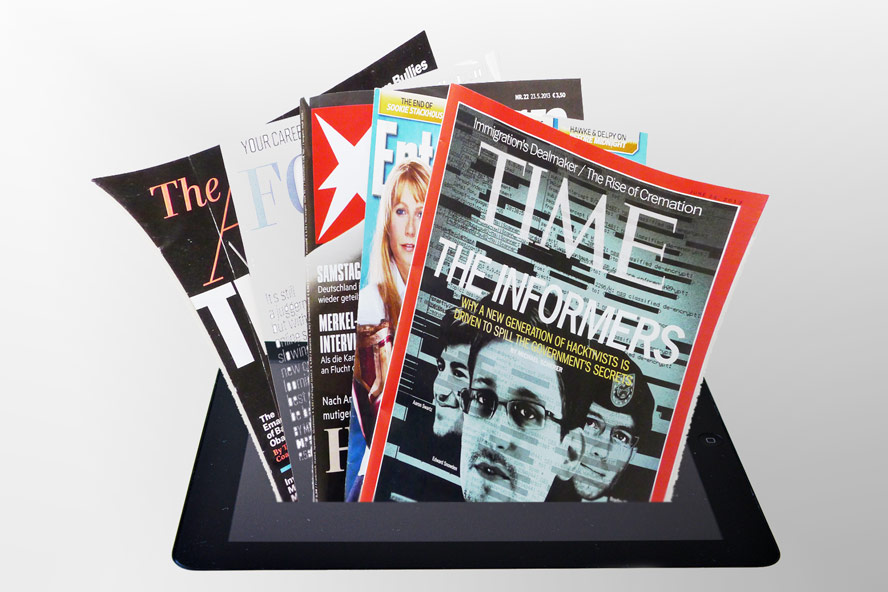
It didn’t have to be like this – we knew what was coming: the music industry showed the way. Still, when readers turned their attention from paper to the Internet, most traditional media companies (mine included) ended up getting caught like deer in the headlights.
To this day, many keep clinging to ancient business models instead of rethinking and reinventing everything. As is necessary for survival.
I’ve been observing the seismic shifts in my own job and in my own industry from a front-row seat in Silicon Valley for the past 15 years – so for whatever it’s worth, here are some of my own conclusions in response to commonly heard phrases by old-media managers confronted with a brand new world.
- “People will pay for quality content.”
No, quality is not enough. It’s the experience that matters, the presentation, the extras, the usefulness of the overall service – not so much the content itself. Articles, videos, audio clips don’t need to be stellar; they can just be “good enough” and still form the basis for lots of businesses built aroundthe content. This is hard to accept for many journalists. How well we tell our stories has been the main reason, for decades, that people chose one newspaper, one magazine, over the other. But in an age of information overflow, what we have to say, and how we say it, becomes secondary to a variety of other factors – how nice an app looks, how easy we make it to find relevant information, how well we guess what readers want right now, in any given situation. The success that apps like Flipboard and Pulse have with other companies’ content illustrates how the experience of reading is becoming easily as important as the actual content on offer. - “We need paywalls. We need to teach people that quality journalism costs money.”
Good luck. Just ask yourself: if you’re offered free bouquets of flowers on every corner, would you pay money for the bouquet that’s supposedly a little more fresh and beautiful than all the others? In news, there is hardly any reason to pay for the information itself anymore. There’s no exclusivity in the age of Twitter, blogs, and Facebook, and most people are happy to collect news snippets from many sources, all over the digital world. Paywalls may work, within limits, for a handful of publications that sit in a well-defined niche (F.T., Wall Street Journal) or have a world-wide audience and a world-class reputation (New York Times) – but certainly not for the average newspaper or magazine. Not unless you offer something else, something unique, in addition to mere information. - “There’s no money in digital.”
Love this one. Nothing illustrates the lack of imagination better than publishers’ lament that digital dimes can’t replace the many dollars they used to make in print. New media require new business models – what could be more obvious? So if print publishers don’t want to leave all the billions that can actually be earned in digital media to Google, Facebook, Twitter & Co., they need to come up with new ways to package their information, new ways to sell their products – and entirely new products. Merely relying on advertising is a losing proposition. There’s no limit in websites and services potentially offering ad space, so prices, by definition, are bound to fall. And mobile ads are even less profitable. But arguably, there are many other ways to earn money in the digital world – referral payments, freemium services, revenue share with partners, events built around brands. Naturally, this requires rethinking and reinventing, rather than merely adjusting the current business.
Much of the traditional media business is up for grabs right now. Most magazine categories are begging to be reimagined in digital form. Where, for example, is the modern Rolling Stone that lets me discover music first – and once I like what I hear and see, I can read more about the people making the music? Why would I want to flip through a travel magazine page by page, rather than explore the world on a map, zoom in and zoom out, until I find a place that I may want to visit and learn more about?
The opportunities are endless. But for any traditional media company refusing to embrace them, time is running out.

